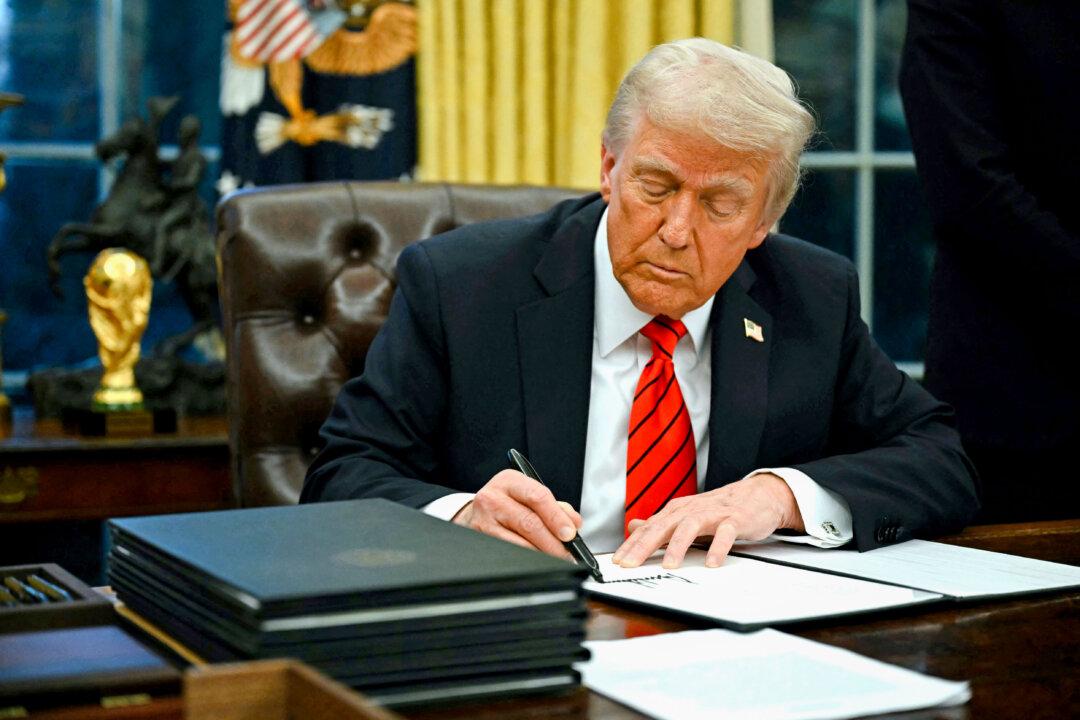President Donald Trump signed an executive order on Monday aimed at improving American companies’ economic prospects by limiting enforcement of business transactions under foreign corruption laws.
“It’s going to mean a lot more business for America,” Trump said, while signing the order in the Oval Office.





